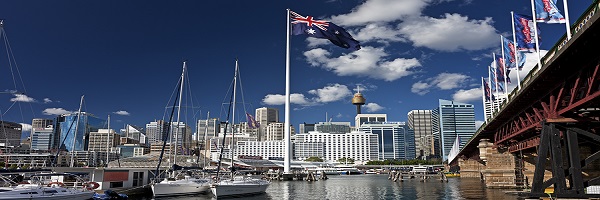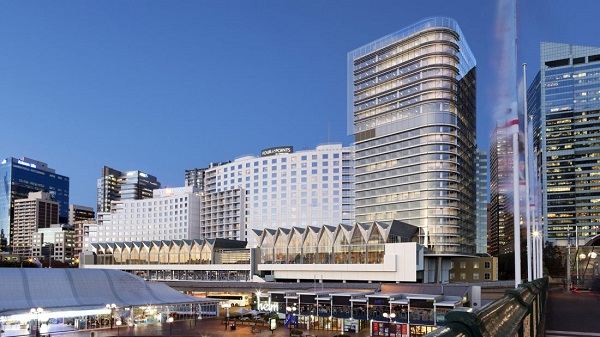
FWO clampdown on sham contracting
Outsourcing of various aspects of an accommodation provider’s business can be a most productive way of managing expenditure and better appropriating management time while still maintaining a high level of guest service.
This especially applies to housekeeping and, over the years, Resort News has published many articles that have analysed the pros and cons of outsourcing with frequently the pros outweighing the cons.
But there is one ‘con’ that is a most disturbing one as it can reverberate heavily on the accommodation provider even though it may not appear to be their responsibility.
Numerous companies are finding themselves subject to penalties imposed for breaches of section 357 of the Fair Work Act 2009 after findings that the “independent contractors” they have hired are in fact legally their employees. It is unlawful for an employer to represent a person who is in fact its employee as an independent contractor. This is known as “sham contracting”.

The term is used to describe the deliberate mischaracterisation of a relationship between an employer and an employee as a contractor relationship (one between a principal and independent contractor). The issue is that the worker, who may even be receiving a higher hourly rate as a contractor, is not receiving all the entitlements (like annual leave, sick leave, public holidays, superannuation) and job security that they would be entitled to receive if they were an employee of the company.
Representing that someone is an independent contractor when they are really an employee, or dismissing an employee and re-engaging them as an independent contractor to do the same work they did previously, is unlawful – and it is not just the employer who may be in trouble. An accommodation provider and even individuals within a business may also face serious penalties.
And a string of recent cases has shown that the Fair Work Ombudsman and the courts are prepared to come down hard on sham contracting.
Some big names have been caught up in FWO investigations and compelled to enter into enforceable undertakings as well as remunerating short-changed workers and facing penalties. Recent examples are Myer department stores, Caltex franchised servos, food delivery companies Deliveroo and Foodora, Australia’s second-biggest pizza chain Pizza Hut, food processor Baiada Group and the well-publicised 7-Eleven franchise case. In the latter, the outcome clearly put the onus of responsibility not just on the franchisee but the franchisor. The FWO investigation into the convenience store franchise identified systemic underpayments to workers and false record-keeping practices. While a number of individual franchisees were investigated by the FWO, it was up to the 7-Eleven chairman and founder to rectify the problem. Even charities are not exempt from this scrutiny: Sydney-based fundraising company Mondial Fundraising Communications P/L agreed to back-pay $770,000 to 824 current and former employees it has underpaid since 2010.
The accommodation industry is also caught up in the tangled web of employee/contractor problems.
The Fire and Stone Restaurant at the Tangalooma Island Resort was found to have underpaid a Chinese worker a total of $1577 in just 19 days during 2014. According to the ombudsman, Jia Ning Wang, the restaurant’s operator had been incorrectly classifying the worker as a contractor, and did not comply with standard record keeping and payslip laws, and failed to produce employment records when requested by the FWO. The Federal Circuit Court fined Wang $3500 and penalised her business Golden Vision Food & Beverage Services P/L a total of $17500.
The FWO took Quest South Perth Holdings P/L to the Federal Court back in 2011 over allegations it was mischaracterising the employment of two housekeepers. Initially, the Federal Court dismissed these claims. However, the employment watchdog appealed to the High Court, which ruled in FWO’s favour. The High Court found Quest South Perth Holdings engaged in a “triangular contracting” arrangement. This involved a separate labour hire business engaging the two housekeepers on behalf of Quest South Perth Holdings, despite the fact the two employees had worked for the accommodation provider for some time.
[NOTE: Quest South Perth Holdings no longer operates the Quest serviced apartments in Arlington.]In 2014, investigations by the FWO uncovered seven employees were underpaid more than $5000; meanwhile another was owed more than $13,500 by Brisbane-based Samdoo Corporation P/L. Samdoo operates hospitality and retail establishments across Brisbane, including the Diana Plaza Hotel. As an alternative to litigation, Samdoo entered into an enforceable undertaking with the FWO requiring the company to apologise and reimburse staff members their outstanding entitlements.

Bijal Girish Sheth of Brisclean P/L was penalised a record $126,540 and ordered to back-pay workers almost $60,000 last month in a result that sends a warning that individuals can be held personally liable for exploitation of workers. Brisclean could not be pursued in court after it was placed into administration last year but the FWO used the accessorial liability provisions of the Fair Work Act to take legal action against Sheth. The sham contracting penalty is the highest ever secured by the FWO against an individual.
Four Points by Sheraton on Sydney’s Darling Harbour was embroiled in a housekeeping contract controversy in 2015. While the hotel did not directly employ the cleaners, it contracted its housekeeping services to International Hotel Services, which then sub-contracted to a third company, Strathfield-based ATM Cleaning Management.
ATM began being investigated by the FWO in August 2014. It was discovered by FWO inspectors that the company had been underpaying 45 of its 65 housekeepers and was failing to comply with minimum hourly rates, casual loadings and correct penalty rates for weekend, public holiday and shift work, as well as taking unlawful deductions from the wages of some employees when they had made mistakes such as misplacing their nametags. Two weeks’ wages were also unlawfully deducted from employees’ pay if they did not complete six months’ service.
Additionally, the company was paying staff under the terms and conditions of the Hospitality (General) Award, when it should have been paying the workers under the Cleaning Services Award.
Cho Rok Jun, ATM’s sole director, and Micky An, the general manager, made an agreement with the FWO to review the pay packets of all employees dating back to June 1 2014, and back-pay all outstanding wages and entitlements as well as reimburse unlawful deductions. ATM co-operated fully with the FWO’s investigation and agreed to sign an enforceable undertaking.
Fair Work Ombudsman Natalie James said at the time: “In this case, the cleaners are not directly employed by the hotel, but it [Four Points by Sheraton] now faces potential adverse media as a result of not monitoring the employment conditions of all workers on its premises.
[Four Points by Sheraton on Sydney’s Darling Harbour is now Hyatt Regency Sydney.]“Procurement managers must be mindful that any savings they make when outsourcing cannot come at the expense of sub-contractors underpaying the minimum wages and entitlements of their employees – in this case, young, vulnerable workers who would have had little understanding of their workplace rights.”
This was part of a major investigation the results of which were released in May 2016. The investigation by FWO into four and five-star hotels involved the Starwood, Accor and Oaks groups and found more than 120 housekeepers were underpaid more than $57,000. Many housekeepers were paid a flat rate for each room cleaned, inconsistent with their legal entitlements under relevant industry awards.
In the case of Starwood Hotels and Resorts Worldwide Inc, it used a number of principal contractors to supply housekeepers to its properties: International Hotel Services P/L; Empire Hospitality Australia P/L; Silk Hospitality Services P/L; Challenger Hospitality P/L; and Express Web Ltd [now ceased operating] that in turn engaged sub-contractors.
The Accor Group used two principal contractors: AHS Hospitality P/L and Metro Housekeeping P/L.
Outcomes arising from the inquiry included three enforceable undertakings, the issuing of eight letters of caution, six compliance notices and two on-the-spot fines plus the reimbursement of lost wages.
FWO took a more serious view of Housekeepers P/L, the sole principal contractor for Oaks Hotels & Resorts Ltd. Housekeepers P/L, established by Oaks in 2008, engaged its workers as independent contractors whereas FWO alleged they should have been classified as employees. The workers were paid on a rate-per-room-cleaned basis.
FWO’s James insisted: “We view the conduct of Housekeepers P/L and Oaks Hotels & Resorts Ltd more seriously than other contractors and hotel groups that were the subject of this inquiry. While others applied the wrong industrial instrument or failed to correctly apply all provisions of an industrial instrument, in contrast, Oaks and Housekeepers established an independent contracting operating model which meant that workers did not receive wages and conditions they were entitled to as employees.
“After initially declining to do so, Oaks Hotels & Resorts Ltd has signed an enforceable undertaking with the FWO after the agency expressed concerns about its housekeeping procurement practice. Oaks changed its mind about signing an EU after receiving advice that we intended to file legal proceedings against its housekeeping services provider, Housekeepers P/L.
“After notifying Housekeepers P/L of our intention to file legal proceedings, Oaks Hotels & Resorts Ltd and Housekeepers P/L subsequently asked us if they could sign EUs, and they did so on the terms originally offered by us,” James said.
Oaks’ former chief operating officer was issued with a letter of caution.
Oaks and Housekeepers were required, among other things, to: ensure that any workers are repaid their full entitlements; place an “apology” for their conduct on their respective websites and at their various workplaces; place public notices in the Saturday editions of nine major newspapers; implement electronic time-keeping systems to accurately record the hours worked by all cleaners; ensure all cleaners are issued with photo identification cards; ensure principal and sub-contractors provide written notification that directors, officers and managers understand their obligations to comply with workplace laws; terminate the contracts of any company found to have breached its workplace obligations; organise training for directors and others with managerial responsibility on their workplace obligations; and make a $20,000 donation each to the Cleaning Accountability Framework.
Oaks back-paid 1500 of its cleaners a total of $1.9 million as a result.
[The CAF was established by key industry participants to develop a culture of compliance with workplace laws across the industry.]James said: “We will ask the hotel chains to report back within a year on what action they have taken to improve their corporate governance framework and procedures with respect to housekeepers. Further, FWO inspectors will make follow-up site visits within 12 months to hotels, principal contractors and sub-contractors to evaluate their compliance.”
accomnews understands there are more investigations underway involving accommodation providers and there is a definite need for principals to act with caution.
The penalties for not complying with a FWO order can be dire indeed: recently the FWO obtained a court order to wind up a company behind a Gold Coast restaurant accused of underpaying staff. Queensland’s Federal Circuit Court issued the wind-up order for the The Hub @ Mermaid P/L, which traded as The Hub @ Varsity Lakes.
James stressed: “Outsourcing is a legitimate business arrangement – but in my experience, in highly competitive markets for low-skilled work, it also increases the risk that workers will be underpaid, sometimes quite deliberately. Increasingly, if we find a business underpaying workers and that business is part of a supply chain, we are looking up to the top, because the business at the top of the supply chain is the price-maker and controls the settings.
“The law can extend legal liability to individuals involved in procurement and to companies further up the supply chain. So if boardrooms are not considering these procurement and compliance risks involved, then someone is asleep at the wheel.”
Given the complexities involved in employing staff today, it is important to make sure that the relationships you have with your workers are what you assume them to be – thinking that a relationship is with an independent contractor, when the worker is in fact an employee, can have serious consequences. Accommodation providers must take care to ensure that misrepresentations are not made as to the true nature of a worker’s engagement or risk exposure to prosecution and pecuniary penalties for breaches of the Fair Work Act.
It is critical to undertake a comprehensive analysis and to implement risk-management processes when engaging workers through non-traditional arrangements, such as contracting and labour hire firms. Accommodation providers can still be liable for back-payment of entitlements and other liabilities if an employment relationship is later found to exist in law.
James told delegates at the Australian Hotels Association conference last month that the large underpayment and wider inquiry findings clearly highlight the need for lead businesses in Australia to consider the steps they can take to enhance compliance in their supply chains. “It’s not about removing the responsibility of the direct employer – it’s about making sure that those at the top aren’t unfairly benefiting or turning a blind eye to the impacts on the workers at the bottom.”
James warns “it is now a normal part of our work when we find exploited workers to look up the supply chain and ask: what part has the business benefitting from the labour had to play in what has occurred?”
Merely engaging workers through a labour hire arrangement is no guarantee that it is a genuine independent contractor arrangement.
The ramifications of getting it wrong are significant. Aside from the potential of penalties for breach of the Fair Work Act an accommodation provider can be exposed to significant underpayment claims (including minimum pay rates, penalty rates, allowances, leave liability and holiday pay). And it is possible for the FWO to have a company wound up for non-compliance.
The FWO’s campaign is certainly bearing results: Figures show FWO clawed back $781,554 on behalf of 305 workers across the Gold Coast alone for the financial year to July 2016. That compared to $627,704 recovered for 314 undercut workers in the previous financial year.

AccomNews is not affiliated with any government agency, body or political party. We are an independently owned, family-operated magazine.






